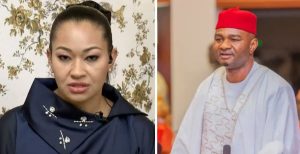Legal Analysis: The Implications of the Defamation Lawsuit Filed by Senator Akpoti-Uduaghan Against Senator Nwaebonyi
3 min read
–By Eculaw Media
In the ongoing saga within the Nigerian Senate and suspension of Senator Natasha Akpoti-Udughan, Senator Onyekachi Nwaebonyi’s actions have escalated into a legal confrontation with significant implications. Senator Akpoti-Udughan has filed a defamation lawsuit against Nwaebonyi, seeking over five billion naira in damages in Suit No. CV/1359/2025 at the High Court of the Federal Capital Territory, Abuja. This lawsuit not only encapsulates the growing tensions within the Senate but also underscores crucial legal principles regarding defamation, especially as they pertain to public figures.
1. Recklessness and Legal Liability:
Legal experts largely agree that Nwaebonyi faces a difficult path ahead in defending against this defamation claim. The crux of the matter lies in the assertion that he acted irresponsibly and recklessly in his allegations against Senator Akpoti-Udughan. Defamation occurs when false statements are made about an individual that harm their reputation, and the threshold for proving such claims can vary depending on the public profile of the individuals involved. In this case, Nwaebonyi’s public comments on platforms like Arise TV, where he accused Akpoti-Udughan of having “six children from six men” and blackmailing her husband, form the basis of her lawsuit.
While senators enjoy certain protections regarding their statements made on the floor of the Senate—immunity from civil suits for those declarations—such protections do not extend to remarks made outside the chamber. Nwaebonyi’s failure to recognize this critical distinction in both legal immunity and the potential consequences of his statements will surely work against him.
2. The Burden of Proof:
In defamation cases, the burden typically rests upon the plaintiff to prove that the statements made were false and damaging. However, in this instance, Nwaebonyi is likely to be compelled to disclose the sources of his claims regarding Senator Akpoti-Udughan. The absence of any credible evidence backing his statements may further undermine his position in court. If he is unable to substantiate his assertions, it leaves him vulnerable to a ruling in favor of Senator Akpoti-Udughan.
3. Political Repercussions:
From a political standpoint, this incident has profound ramifications for Nwaebonyi. The fallout from his reckless comments has not only put his professional reputation at stake but has also spotlighted his judgment, raising questions among constituents about his suitability for public office. Many Nigerians have expressed concerns over his ability to serve effectively, considering that the gravity of his accusations demonstrates a profound misunderstanding of the responsibilities that come with political leadership.
Nwaebonyi’s apparent attempt to curry favor with Senator Godswill Akpabio by launching a personal attack on Akpoti-Udughan has backfired spectacularly, exposing a lack of political acumen that could have long-lasting implications for his career. Such attempts to align with powerful figures at the expense of integrity can jeopardize trust, not just with the public, but with fellow lawmakers.
4. The Role of Social Media and Public Perception:
In this age of information and rapid dissemination of news, social media plays a pivotal role in shaping public perception. Nwaebonyi’s statements, which led to significant backlash, highlight the precarious nature of public discourse in an age where misinformation can spread like wildfire. The ensuing damage to Akpoti-Udughan’s reputation, combined with the public outrage that followed Nwaebonyi’s remarks, indicates that calling out baseless allegations is more than a legal issue—it’s a societal imperative.
A Cautionary Tale:
In summary, Senator Nwaebonyi’s predicament serves as a cautionary tale on the power of words and the critical importance of accountability in public life. As the defamation lawsuit unfolds, it not only emphasizes the legal ramifications of rash statements but also establishes a precedent for the standards expected from public figures in Nigeria. The outcome of this case will undoubtedly influence perceptions of defamation laws in the country.
For Senator Akpoti-Udughan, this lawsuit is a moment to reclaim her narrative and assert her dignity in the face of unfounded attacks. As for Nwaebonyi, the court will soon reveal how much his folly will cost him. The complexities of this situation encapsulate the volatility of politics within Nigeria and remind us of the vital interplay between morality, integrity, and the law.

